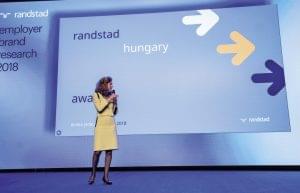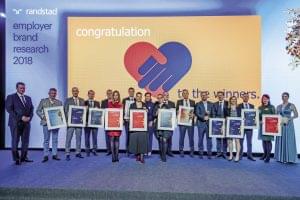Magazine: Why is there no workforce shortage at certain companies?

Sándor Baja
managing director
Randstad Hungary
Hungary has taken part in the Randstad Employer Branding survey for the fifth time. The survey is conducted in 30 OECD countries, which produce 75 percent of the world’s GDP. Retail trade has become more attractive to workers: two years ago only 23 percent said they would work in this sector, but by now this proportion grew to 32 percent. Last year 40 percent of respondents fancied working for FMCG manufacturers, but this year only 38 percent did. Some retailers increased salaries considerably and introduced a flexible working time policy, and these steps gave them the chance to choose from very good job applicants. However, there are also retailers who don’t even want to know what workers think about them – and they are surprised that they can’t recruit new workers! Managers who aren’t interested in employer branding find it more difficult to find new employees.
Randstad’s survey interviewed 8,200 Hungarian workers about looking for work, why they want a new job, why they stay where they are and in which channels they search for jobs. Last year 23 percent switched jobs, this year 33 percent plan to do so. As for workforce fluctuation, 10-15 percent is a normal rate, but there are problems if this proportion is higher. The study has revealed that the 5 most important reasons for wanting a new job are: 1. salary, 2. career opportunities, 3. the management’s knowledge about workers, 4. the company offers no or few benefits, 5. no challenges for workers.

Ilonka Jankovich, ex-managing director
How do job choice criteria change? All over the world salary is the No.1 factor, but workplace environment is becoming more and more important. Workers also care more about healthy finances when they choose a workplace than before. It is also important that people want to work with successful and motivating managers. The problem is that when a company advertises jobs, what they offer doesn’t match with what job seekers want (their expectations). Those companies which engage in successful employer branding get twice as many applicants as others, for instance half of the people wouldn’t even work for bad-brand companies for more money. 96 percent of workers say it is important to identify with the company’s corporate culture.

Randstad Award winners
From the 150 biggest employers surveyed by Randstad Coca-Cola was ranked the highest in the 10th position – 56 percent of workers would like to work for the company. Among retailers IKEA was the best, they finished 35th in the overall ranking – 47 percent want to work for the company; as for grocery retailers, Lidl was the most attractive (38.5 percent of people would work for them). For their 5-year excellent performance dm Drogerie Markt was given an excellence award. Mercedes won this year’s Randstad Award, ahead of IBM and Bosch; Audi also got an excellence award for their 5-year good performance. //
Related news
Related news
PwC Consumer Loyalty Survey now available for pre-order
🎧 Hallgasd a cikket: Lejátszás Szünet Folytatás Leállítás Nyelv: Auto…
Read more >








